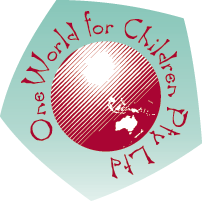 Pertussis alert - March 2009
Pertussis alert - March 2009
Overview
The number of notified cases of pertussis (whooping cough) has increased sharply in Victoria, with a 48% increase occurring between December 2007 and December 2008. There was a notable increase in the number of cases aged less than 12 months, with 55 cases in 2008 compared with 25 in 2007. This increase is continuing in 2009. Pertussis is most serious in babies under 12 months of age often requiring admission to hospital. Around one in every 200 children under six months of age who catches whooping cough will die.
What can you do?
Pertussis booster vaccine
Please encourage those in the groups listed below to have an adult pertussis booster vaccine (combined with diphtheria and tetanus):
- Adults before planning pregnancy or for both parents as soon as possible after birth
- Adults working with or caring for very young babies, especially health-care workers and child-care workers
- Any adult wishing to protect themselves against whooping cough
Transmission
Pertussis can be caught through coughs and sneezes from an infected person. Parents and family members are the main source of infection for babies.
Clinical features
Pertussis is a highly contagious disease that affects the air passages and breathing. The disease causes severe coughing spasms. Between these spasms, the patient gasps for breath. Coughing spasms are often followed by vomiting and the cough can last for months. It can lead to complications such as haemorrhage, convulsions, pneumonia, coma, inflammation of the brain, permanent brain damage, long term lung damage, and death.
 Childhood Immunisation
Childhood Immunisation
Babies are at risk from birth as no pertussis protection is passed from mother to newborn infant. Complete immunisation of children remains the most effective measure to control pertussis.
Pertussis vaccination is offered as part of the National Immunisation Program for children at 2, 4, 6 months, at 4 years and in year 10 of secondary school (or 15 years of age). A child who has received less than three doses of a pertussis containing vaccine should be considered at risk of pertussis. People become immune either through pertussis immunisation or by catching the disease itself, but protection is not life long and begins to wane after 6-10 years. Sometimes immunised people still contract pertussis, but they are likely to have a less severe illness. All parents are urged to check their child’s immunisations and catch up any missed doses if necessary with their doctor or council immunisation program.
Remember that pertussis (suspected or confirmed) is a notifiable disease under the Health (Infectious Diseases) Regulations 2001.
- Doctors and laboratories are required to notify cases within five days to DHS.
- Notifications can be completed by post, by fax to 1300 651 170, completed online or telephoned to 1300 651 160.
- If you require any further information, please call the Communicable Disease Prevention and Control Unit on 1300 651 160.
Information sourced: www.health.vic.gov.au







 One World for Children Acknowledgement of Country: Here is the land; Here is the sky; Here are my people and here am I. We give thanks to future, present and past; Ancestors and elders and the connection that lasts. We acknowledge the Wathaurong people on whose land we learn and play; We promise to look after it every day. ©
One World for Children Acknowledgement of Country: Here is the land; Here is the sky; Here are my people and here am I. We give thanks to future, present and past; Ancestors and elders and the connection that lasts. We acknowledge the Wathaurong people on whose land we learn and play; We promise to look after it every day. ©